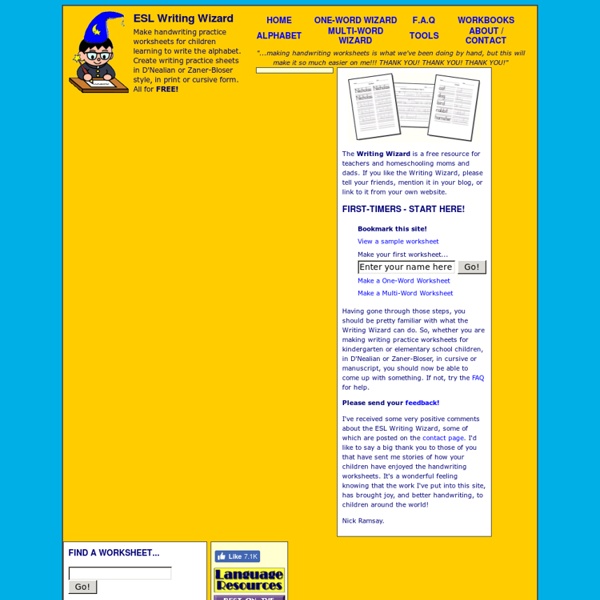Best Science Experiments for Kids
It is no secret that Science is one of our favorite subjects around here. As a kid myself, I was always interested in science and discovery. As a teacher, it was one of my favorite subjects, and well… now that I have kids, it is one of their favorite subjects as well. The thing about science, is that it can be intimidating, seem overwhelming with terms, and sometimes downright messy. But want to know the secret?
Author of the month: Frances Marnie
Frances Marnie, author of our ESOL series Absolute Beginners, tells us about her romance with the French capital, the rich melting pot of cultures she discovered in a small town in Scotland and why helping her students negotiate their daily lives is endlessly fulfilling. Tell us a little about yourself Like many of my colleagues, I fell into the world of TEFL due to a combination of circumstances. It really all began with my love affair with Paris …
We felt so lucky to foster a young refugee. Don’t let Parsons Green tarnish a proud tradition
A year ago my husband and I were reading about child refugees arriving in the UK. On the spur of the moment, we decided to become foster parents. After all, we had enough space, the resources to offer support and felt a responsibility to do something. Trusting and caring for strangers who need it is a British tradition that we felt proud to become part of. Within just a few days, Ibrahim (not his real name) arrived. He was a teenager from Aleppo whose journey to the UK had been long and dangerous.
Books That Explore the Refugee Experience
A recent UNICEF report says that 28 million children worldwide are refugees. Horrifying images of young people fleeing war-torn regions circulate online, and it can be overwhelming for students to see other young people suffering. But literature and art have long been vehicles to help us make sense of tragedy, and in the hands of gifted storytellers and illustrators, humanitarian crises in Syria, Sudan, and elsewhere can not only deepen student empathy but inspire action. There are many books that can help give kids this deeper perspective—these are a few memorable reads recommended by educators. The Journey Told from the perspective of a young child, this 2016 book set in an unspecified region uses lush illustrations and few words to present a family’s migration as an allegory.
Picture books
The following is an extract from an article written for Viewpoint Magazine, describing some of the ideas and process behind this book. Looking over much of my previous work as an illustrator and writer, such as The Rabbits (about colonisation), The Lost Thing (about a creature lost in a strange city) or The Red Tree (a girl wandering through shifting dreamscapes), I realise that I have a recurring interest in notions of ‘belonging’, particularly the finding or losing of it. Whether this has anything to do with my own life, I’m not sure, it seems to be more of a subconscious than conscious concern. One contributing experience may have been that of growing up in Perth, one of the most isolated cities in the world, sandwiched between a vast desert and a vaster ocean. More specifically, my parents pegged a spot in a freshly minted northern suburb that was quite devoid of any clear cultural identity or history.
Poems for…one world – Poems for…the wall
Our new title - Poems for...the wall. It makes clearer the fact that we supply poems for public space. It doesn't affect the titles of our collections. This new website - It is almost finished now. It is striking to look at ; it is technically up to the mark ; it is simple to use. Thanks Joe.
Teacher Dude's Grill and BBQ: ESL
A couple of days ago I mentioned an idea for using audio tours as the basis for an efl/esl lesson. The actual lesson plan was for more advanced students and perhaps would not be useful for many teaching situations. So here is another idea which can be used for post beginners/intermediate students and can be more easily organised in a classroom context. Lesson plan 1 Explain what a audio tour is. Ideally, have one ready top play on your mp3 player/mobile/PC etc.
How to build confidence among low-level learners of English
English My Way is a new education programme to support migrants in some of the UK’s most isolated communities. Project officer Frances Carbines shares tips here on how teachers and volunteers can help build confidence among low-level learners. Language barriers and how to overcome them While early language barriers and experiences of migration will certainly have a harmful effect on learner confidence, using one or several of the following tried and tested approaches can offer learners a sense of identity, place and hope. Understand your learners and their backgrounds Migrant and refugee low-level learners of English will bring to the classroom vastly different worlds of experience.
10 Best Games for ESL Teachers Abroad
Games and fun activities are a vital part of teaching English as a foreign language. Whether you’re teaching adults or children, games will liven up your lesson and ensure that your students will leave the classroom wanting more. Games can be used to warm up the class before your lesson begins, during the lesson to give students a break when you’re tackling a tough subject, or at the end of class when you have a few minutes left to kill.



